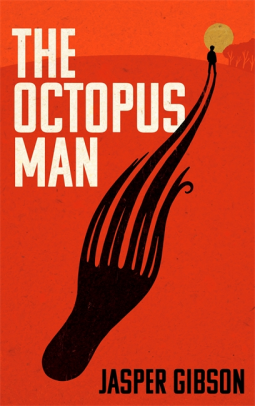Wide Sargasso Sea by Jean Rhys
After a convent education in Spanish Town, her stepfather’s son brokers a marriage between Antoinette and Edward Rochester, newly arrived from England. Reluctant initially, Antoinette hopes to find love during an extended honeymoon in an isolated house in the Windward Islands. Unfortunately, hearing rumours about madness in the family and believing he’s been duped, Edward shuns her. With her fortune having passed on to her husband, Antoinette is stuck, and a consultation with an obeah woman (a traditional herbalist) backfires.
Exiled from her homeland, stripped of her possessions and even her name (Edward calls her Bertha), she’s shipped to England. Locked up, with only Grace Poole for company, she seems to tick the psychiatric boxes yet, having followed her from childhood, the reader knows she is not totally mad, but angry. And bewildered, with nothing to reflect her true self back at her (p117):
There is no looking-glass here and I don't know what I am like now. I remember watching myself brush my hair and how my eyes looked back at me. The girl I saw was myself yet not quite myself. Long ago when I was a child and very lonely I tried to kiss her. But the glass was between us - hard, cold and misted over with my breath. Now they have taken everything away. What am I doing in this place and who am I?
I reread this novel for an online talk on writing about mental health issues, where I contrast Charlotte Brontë’s depiction of the mad woman in the attic in Jane Eyre with Jean Rhys’s humanising the same character over a century later. First published in 1966, Wide Sargasso Sea presents a richer narrative of the woman who, for 19th-century readers, is less a character than a piece of gothic scenery or an obstacle on Jane’s journey to true love.
The Octopus Man by Jasper Gibson
For twenty years he’s trod the tightrope between sanity and madness, with those who police the boundary not always on his side. As the novel opens, Tom is under pressure from both his sister and his care coordinator to participate in a drug trial, but why should the risk potential side-effects of a medicine designed to treat athlete’s foot? A hug from his care coordinator cannot compensate for her role in a system in which a patient’s opinion on his own mental well-being carries little weight.
Tom shrugs off yet another disappointing appointment and takes the train to London to meet up with his oldest friend. But too much has changed for both of them since they fought together, took drugs together, and shared a threesome with another friend’s mum. Tom was once a promising law student. Now he can barely hold a conversation.
Fleeing the pub, Tom is physically and verbally abused by the octopus god until, confused, lost and hungry, he collapses and is picked up by the police and compulsorily detained on a psychiatric ward. No-one could describe the regime as therapeutic, although he does make a friend. I hoped the abuse Tom witnessed, and was blamed for, was an exaggeration, as the twenty-first century London hospital seemed as scary as the one in 1950s Americana depicted in One Flew over the Cuckoo’s Nest.
Tom gets his discharge by agreeing to take part in the clinical trial. Such an egregious betrayal of his god feels suicidal, yet it’s the octopus god who is silenced. For a while, everyone is pleased, including Tom. He can drink alcohol, eat meat and maybe have sex if he can tolerate the stresses of dating. But soon it doesn’t feel like freedom, more a different kind of failure, because something is missing and he struggles with staying awake.
From my work as a clinical psychologist with people who have psychotic experiences, I immediately recognised Tom. The love-hate relationship with voices that both protect and persecute. The constant battle against insanity within a society and service system that defines your treasured beliefs as insane. The pain of knowing you’re underperforming, while powerless to put it right. I was reminded how it can be especially traumatic for highly-intelligent people like Tom to have to rely upon, and be deemed irrational by, staff who are much less bright.
Tom’s backstory is consistent with a vulnerability-stress model of mental illness. While he carries a diagnosis of schizophrenia, which is no doubt recorded as drug-induced, the author feeds the reader episodes of his earlier life consistent with a more psychological formulation. Parental neglect, followed by the death of his girlfriend’s mother, might have contributed as much as the drugs to push him over the edge.
However, The Octopus Man is more than an authentic depiction of someone who hears voices. It’s an absorbing story narrated by an unusual character who is as endearing when communing with nature as he is in conversation with his personal god. Five shiny stars from me and thanks to publishers Weidenfeld & Nicolson for my review copy. I strongly recommend you to read it. For the voice.
It’s strange, but I never thought of my character, Matty, in my own forthcoming novel, as a voice-hearer, perhaps because she’s lived for so long inside my head. She’s launching next week: click on either image to learn more.
In another life, he’d freed his feet from the tyranny of shoe leather. Liberated his limbs from linen’s law. He’d felt a lightning flash of revelation, commanding him to shed convention’s carapace with his clothes.
In that life, Edward was a naturist, a socialist, a feminist, an environmentalist and vegetarian. Rambler, recycler, smallholder, author, philosopher and openly gay man. Alas, his current life shrinks him to a single label, distorts his passions with its disapproving prism. His psychiatrist, arriving unannounced to find him gardening naked, observes a symptom of his schizophrenia diagnosis and feels compelled to up his meds.


























 RSS Feed
RSS Feed





















